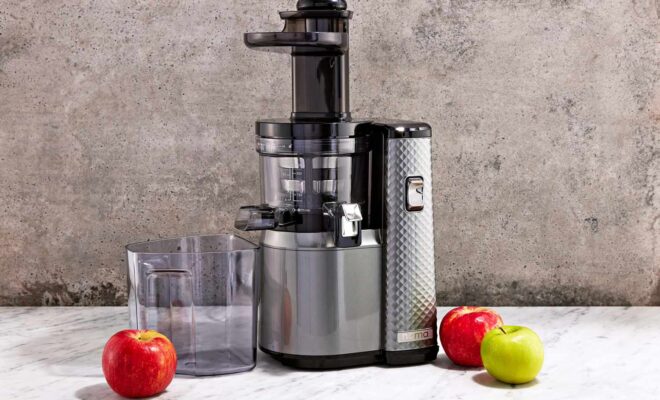All You Need To Know About Juicers

A juicer is a kitchen appliance that extracts liquid from fruits and vegetables. It also enables people to drink juices that are higher in vitamins and minerals than usual.
A juicer can be categorized into two types: a masticating or a centrifugal juicer. Both have their pros and cons, depending on your needs.
Size
The size of a juicer will have an impact on how much you can use it in a given amount of time. If the feed chute is large enough to accommodate larger whole fruits and vegetables, it will save you a lot of prep work.
The type of juicer you choose will also have an effect on the cleaning process. Juicers with complex parts or places where pulp can get caught will require extra manual TLC to clean, which is always a pain.
A good juicer will come with a handy cleaning brush, which can help you reach areas that are tricky to reach by hand. The removable parts of a juicer are generally dishwasher safe, but this is not always the case with the more complicated machines.
Power
A juicer is a powerful electric device that grinds fruits and vegetables to extract their vital nutrients. It has many features that make it a good choice for anyone who wants to start a healthier lifestyle and reduce their sugar and calorie intake.
A high-quality power juicer will have a strong motor and blades that are made from surgical stainless steel. This ensures that the machine works at optimal levels to extract juice efficiently.
It also has a large chute that can accommodate full-sized fruits and vegetables without cutting them. Its patented extraction technology allows you to get more juice from a fruit or vegetable than you would with a regular blender.
In addition to this, Green Power’s twin gear press extracts a substantially higher concentration of essential minerals than leading juicers. This includes calcium, iron and zinc.
Nutrients
Juices are a great way to get more vitamins and minerals into your diet. They’re also a convenient alternative to eating whole fruits and vegetables.
However, juices can’t deliver all of the nutrients your body needs. Some of the nutrients in juices can be lost due to cooking or pasteurization.
This can be a problem especially if you’re trying to lose weight. It can make you eat less of the nutritious foods you need for weight loss, which can have a negative impact on your health.
To minimize this effect, a study published in the Journal of Diabetes Research found that using a nutrient extractor blender instead of a conventional juicer may help reduce sugar spikes after eating certain types of fruit.
The best juicers are those that preserve and extract the vital nutrients in fruits and vegetables. They’ll also be able to produce thicker, more satisfying juices.
Cleaning
Cleaning a juicer is an essential part of keeping it healthy and performing well. Without regular cleaning, small bits of pulp can get stuck in the parts and lead to bacterial and mold growth.
Juicers come with a cleaning brush that can help to remove residues from hard-to-reach areas. It is a good idea to use this brush regularly to avoid stains and buildup from developing.
The most difficult part of a juicer to clean is its filter or mesh screen. This is a tricky area to clean because it is designed to trap pulp and keep it from contaminating the juice that comes out.
The key to a successful cleaning of this part is to make sure it is properly soaked in water and natural dish soap after each use. It is also important to thoroughly scrub the screen and the mesh itself. This will prevent a buildup of clinging pulp and ensure that your next juicing session goes smoothly.









